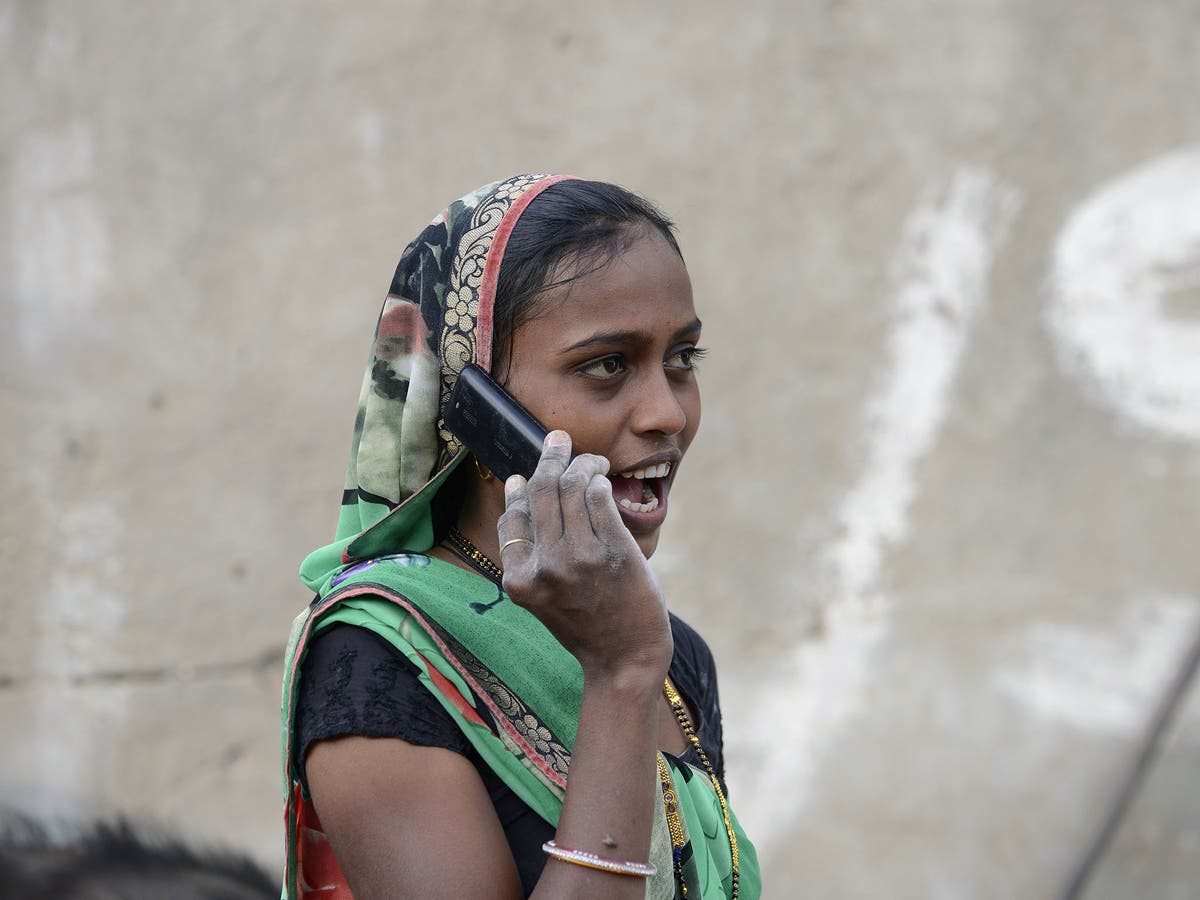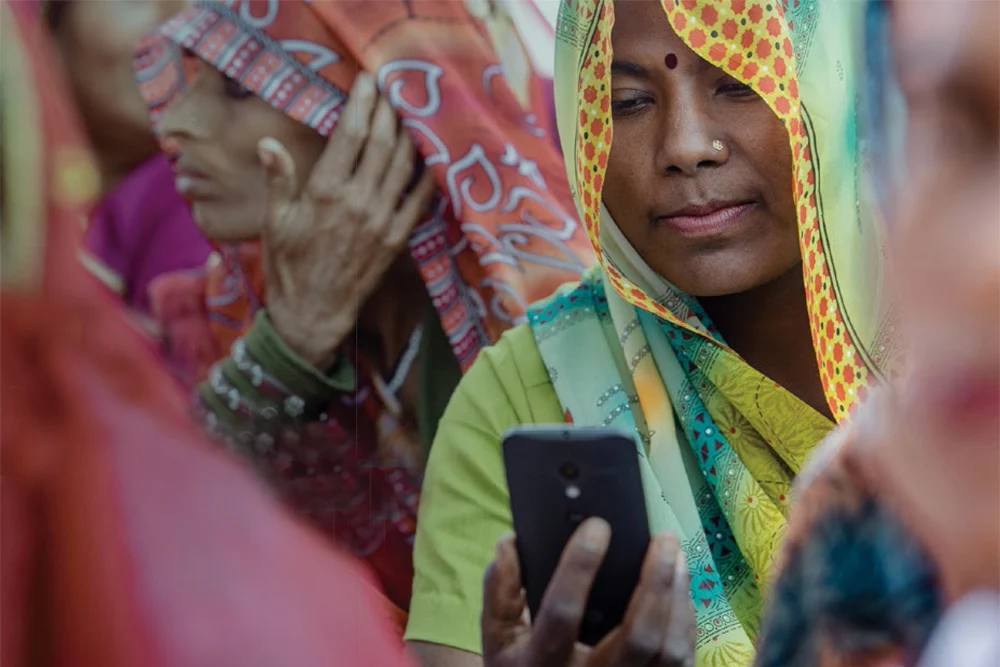Editor’s Note: FII’s #MoodOfTheMonth for August 2022 is Gender and STEM. We invite submissions on the many layers of this theme throughout the month. If you’d like to contribute, kindly refer to our submission guidelines and email your articles to sukanya@feminisminindia.com
One month into the lockdown in 2020, my domestic help called me to check if I was going to pay her the monthly salary, though she was unable to come to work. She mentioned that her salary was the only source of income for her family which consisted of three children and her husband, who is an autorickshaw driver.
She frantically mentioned how his income was almost negligible at the time, I agreed to pay but asked her if she could give me her bank account number or a Google Pay or Paytm account number to transfer the amount digitally as our apartment would not allow non-residents to come in, and I did not have enough cash as well.
The irony of this situation is that she had to ask another male relative to share his phone number to transfer the money; as her husband’s account was blocked due to some KYC issues and she did not have a bank account – the only member in a position to support the family did not have her own phone nor did she own a bank account.
The pandemic really changed things for my domestic help, who now has her own bank account and her own mobile phone – the mobile phone helped her children attend classes online, initially. These milestones in her life match the GSMA Report of 2021, The Mobile Gender Gap Report, which talks about how women are now in a better position to negotiate the ownership of a technology-based gadget at home as the onus of monitoring online education of the children inevitably falls on them. This automatically leads to women experimenting with the mobile; downloading new apps, searching for new things online, and taking references from their community on suggestive tasks that can be done via mobile.
The pandemic made progressive strides when it came to more women owning mobiles but ultimately, the mobile rarely remains in the hands of the woman. The GSMA report and a recent study on women audiences by Meta indicate how women, despite having mobile phones, are hesitant to be on social media platforms or even search for something online with the fear that it may lead to something they might not want to see or read or assuming that they could go wrong in using the platform
Also read: An Analysis Of Indian Homemakers’ Intimacy With Their Smartphones

Buy not completely own
However, one needs to look at the societal challenges beyond these numbers. Now, in 2022, my domestic help is always without a mobile phone when she comes to work. She commutes at least three kilometers from where she resides, via public transport. When asked she responded, “The kids use the phone“, “My balance is over as my son who is in his mid-teens is glued to photos and videos.”
This brings an important fact into perspective that even though the mobile is bought keeping in mind the needs of this middle-aged woman, its ownership automatically goes to the male members and children in the family.
The concept of owning and not using the phone is further amplified by the thought that a mobile phone could distract or corrupt a woman’s morality. The National Health Survey also mentions that many women own a phone but don’t use it
The pandemic made progressive strides when it came to more women owning mobiles but ultimately, the mobile rarely remains in the hands of the woman. The GSMA report and a recent study on women audiences by Meta indicate how women, despite having mobile phones, are hesitant to be on social media platforms or even search for something online with the fear that it may lead to something they might not want to see or read or assuming that they could go wrong in using the platform.
In 2019, I was mentoring young women from rural West Bengal on digital literacy as part of a digital literacy program conducted by Meta. While interacting with the participants, I observed that though this program provided them with an Android handset each, it was automatically taken over by their family members.
They would use it to download various apps and also consume the data provided. One participant also mentioned that her parents felt that the phone was a huge distraction and should not be encouraged.

The concept of owning and not using the phone is further amplified by the thought that a mobile phone could distract or corrupt a woman’s morality. The National Health Survey also mentions that many women own a phone but don’t use it.
While mobile ownership or adopting of any technology practice is gradually being encouraged by the government and NGOs in India, the societal norms and patriarchal systems prevent women from owning their gadgets to themselves. We still as a society/country need to work on using the gadget judicially and also not be perturbed by the nature of certain content online. We must also educate ourselves on digital hygiene so that the internet does not prevent the benefits that technology could deliver.
Also read: Gujarat’s Thakor Community Bans Inter-Caste Marriage And Cellphones For Unmarried Women
Sneha has worked in the content/news space in various capacities. She has previously worked as a business journalist, as well as a media investment associate for a philanthropic fund. She is currently a partnerships manager for media platform. She has also volunteered with Facebook’s GOAL Program as a student mentor to impart digital literacy to rural women. She is passionate about writing on matters that involve the Internet, social media and education
Featured Image Source: About Her
About the author(s)
Sneha has worked in the media ecosystem for over a decade and through her roles has always endeavoured to create impact and growth for concerned stakeholders. She has worked as a journalist, media investment manager and strategic partnerships for India's top news aggregator -- worked with regional language media houses, and women-centric projects/organisations, reported on key business events and executed projects, and mentored young aspiring journalists. She has also volunteered with organizations like Yunus Social Business, Facebook, ACTGrants and American India Foundation. Through her writing, she aims to explore the intersections of education, gender and technology and also loves writing about movies, web series and music.






Incisive and well penned!!